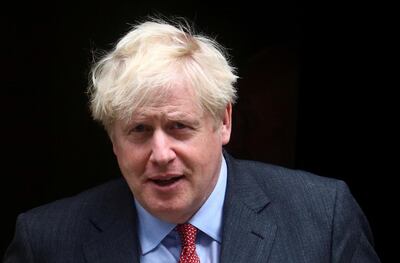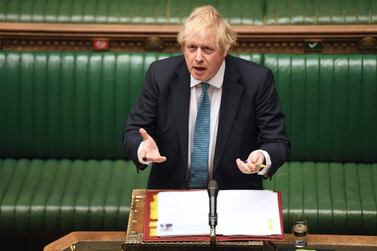The European Union has launched legal action against the UK after Boris Johnson refused to back down on a plan to breach parts of his Brexit divorce deal.
The UK government has previously admitted that breaching parts of the deal would break international law.
European Commission President Ursula von der Leyen said the UK had been put on notice that Brussels would take legal action over Mr Johnson’s plans.
She said: “We had invited our British friends to remove the problematic parts of their draft internal market bill by the end of September.
“This draft bill is, by its very nature, a breach of the obligation of good faith laid down in the withdrawal agreement.
“Moreover, if adopted as is it will be in full contradiction of the protocol on Ireland/Northern Ireland.
"The deadline lapsed yesterday. The problematic provisions have not been removed.
“Therefore, this morning the commission has decided to send a letter of formal notice to the UK government. This is the first step in an infringement procedure.”
The UK has one month to reply to the Commission’s formal letter and more time to change tack before the bloc can sue in Europe’s highest court.
The pound dropped by 0.6 per cent against the dollar on the news.
The government had “clearly set out reasons” to make unilateral changes to the treaty.
“We need to create a legal safety net to protect the integrity of the UK's internal market, ensure ministers can always deliver on their obligations to Northern Ireland and protect the gains from the peace process,” a spokesman said.
The imbroglio comes as talks continue in Brussels over a free trade deal.
Two major sticking points to a deal
UK Cabinet Office minister Michael Gove admitted there was a divide between the two sides.
He said: "Progress has been made in a huge number of areas, but ... there is still one or two sticking points on state aid, the level playing field and fisheries.
"But I think with goodwill on both sides, we can achieve resolution, and I certainly know that this government is determined to do so. But of course, we have clear red lines that we will not cross."

Attempting to diffuse tension between the two sides, Dutch prime minister Mark Rutte said the legal action launched today was “administrative” rather than “political”.
Ireland’s European affairs spokesman Neale Richmond said the move was regrettable but “absolutely the right decision”.
He said: “Time is running out, but it is not too late for a trade agreement to be reached between the EU and UK.
“That is where the focus should be rather than on legislation like the internal market bill.”
Labour leader Sir Keir Starmer called for both the UK and EU to work together over trade differences.
He said: "A deal can be done here.
"It's absurd that with weeks to go, the focus and the energy is not on their negotiations, it's on threatened court proceedings.”
If the internal markets bill becomes law, it will give the UK the power to disregard part of the Brexit withdrawal treaty dealing with trade to and from Northern Ireland, which shares a 300-mile border with Ireland.
EU leaders fear that could lead to the re-imposition of a hard land border and erode the stability that has underpinned peace since Northern Ireland's 1998 Good Friday accord. This concern was articulated by EU chief negotiator Michel Barnier in a tweet on Thursday morning.
Full & effective implementation of Withdrawal Agreement will always be an absolute priority for 🇪🇺
— Michel Barnier (@MichelBarnier) October 1, 2020
It is the result of long EU-UK negotiations & the only way to protect Good Friday (Belfast) Agreement, guaranteeing peace and stability on island of Ireland. #InternalMarketBill https://t.co/92cq1tY6Nj
However, the UK government says it respects the peace accord and the Brexit withdrawal agreement, but wants the law as a “safety net” in case the EU makes unreasonable demands after Brexit that could impede trade between Northern Ireland and the rest of the UK.
Mr Johnson’s large parliamentary majority ensured the bill passed its final House of Commons vote on Tuesday night, despite resistance from opposition parties and even some members of his own party.
The will almost certainly meet strong resistance in the House of Lords after peers raised concerns.
Britain says it wants a free trade deal along the lines of the one the EU has with Canada, allowing for goods to be traded with no tariffs or quotas.
The EU says if the UK wants access to EU markets it must respect standards that EU companies have to live by since Britain is just too close to allow for undercutting rules that would allow for so-called “dumping” of UK merchandise at prices lower than in the EU.






